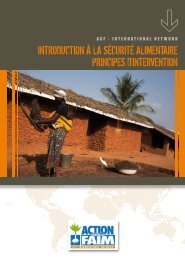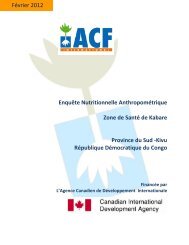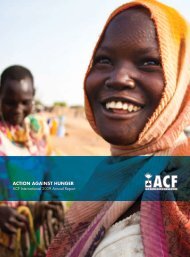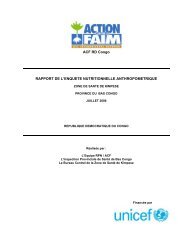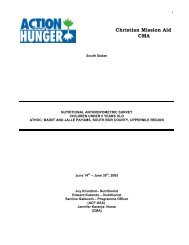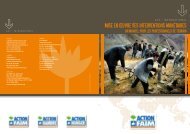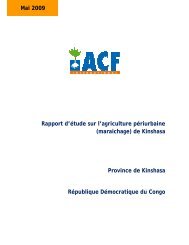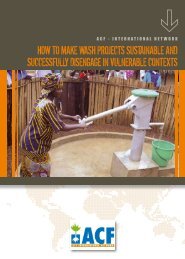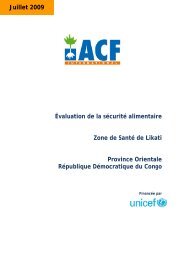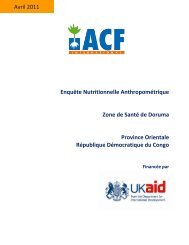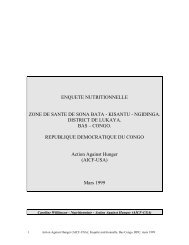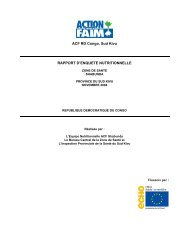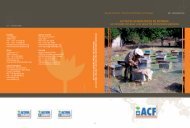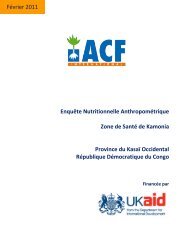Income-Generating Activities - Action Against Hunger
Income-Generating Activities - Action Against Hunger
Income-Generating Activities - Action Against Hunger
Create successful ePaper yourself
Turn your PDF publications into a flip-book with our unique Google optimized e-Paper software.
Field handbook • Scientific and Technical Department<br />
These shops can be created if certain conditions are met:<br />
• Existence of sources of provision that enable the sales of goods at reasonable<br />
prices for the local population<br />
• Financial ability of the population to purchase the products offered<br />
• Existence of local capacity and motivation to look after the shop<br />
• The possibility of constructing or renovating a space that meets certain conditions<br />
for storage that has easy access and is secure<br />
The shop itself will be an IGA, and if it appears to be the best option, a local committee<br />
could be set up to manage it, make a business plan, and define the accounting<br />
procedures. The shop must generate enough income to cover its operation, unless<br />
it is subsidized by a local producer’s organisation.<br />
Example 17: Agricultural shops in Burundi<br />
In 2005, in the province of Ruyigi, Burundi, ACF implemented an agricultural programme<br />
to improve the food security of the families that returned after a relative<br />
return to peace in the country. One of the main problems that the returning households<br />
faced in reinitiating their agricultural activities was the lack of availability of<br />
agricultural goods. The programme supported the creation of 3 IGA groups to start<br />
up shops selling agricultural and veterinary products in main cities in the region.<br />
With these shops, as well as improving the availability of goods for production, incomes<br />
were generated for the 30 families involved in shop management.<br />
The shops were given an initial capital, a distribution system was set up, and the<br />
groups were trained in management. The seasonality of agricultural production<br />
meant that constant incomes could not be generated, and this threatened the sustainability<br />
of the shops. Therefore, it was decided to follow the suggestions of the<br />
beneficiaries and to stock products for basic needs so that through these sales the<br />
shops could stay in activity throughout the year.<br />
iii. Other possibilities for access to goods<br />
The management capacity of the vulnerable population may be quite low, and in<br />
many cases the level of vulnerability is directly correlated to the existing capacity. To<br />
improve the incomes of this sector of the population, it is not always suitable or accepted<br />
to distribute productive goods that require more capacity than the potential<br />
beneficiaries are able to assume.<br />
In the first chapter, Example 3 shows a case in which the most vulnerable population<br />
did not consider very attractive the creation of a village drying plant for rosehips that<br />
they often collect, though this could have increased their incomes by improving the<br />
sales conditions as the fruit would be dried. Instead they preferred that the management<br />
INCOME GENERATING ACTIVITIES: A KEY CONCEPT IN SUSTAINABLE FOOD SECURTIY<br />
59



